

NSFAS Motivational Appeal Letter Samples – 2023
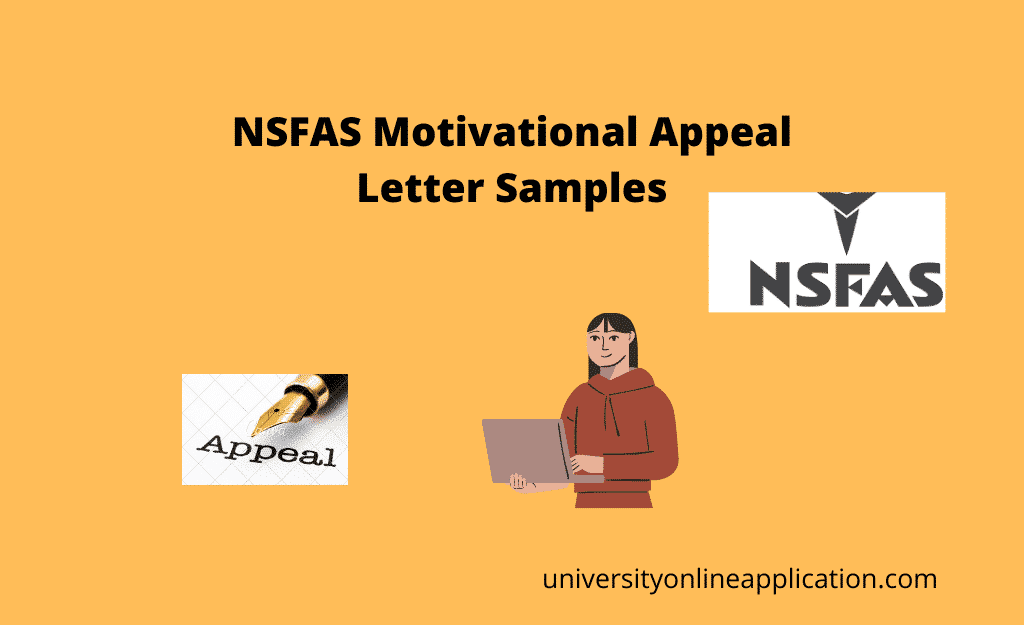
Last updated on February 15th, 2023 at 12:45 pm
Do you want to write an NSFAS motivational appeal letter but don’t know how to go about it?
How about showing you some NSFAS Motivational Appeal Letter Samples as a guide to assist you in writing your NSFAS motivational appeal letter?
In this article, we’re going to show you some NSFAS motivational appeal letter samples.
After reading this post, you’ll know how to write an NSFAS appeal letter to appeal your NSFAS application.
So, let’s jump right into the discussion of NSFAS Motivational Appeal Letter writing.
Table of Contents
NSFAS Motivational Appeal Letter Samples
This is a short example of an appeal letter to NSFAS.
“To, The National Student Financial Aid Scheme (NSFAS) Private Bag X1, Plumstead, 7801. From, Lethabo Johnson 922 Wit Rd Johannesburg Gauteng Phone number 085 623 6436 11 December 2021 Dear Sir, My name is Lethabo Johnson, a first-year student at the University of South Africa (UNISA), reading Bachelor of Law In Criminal Justice.
I write to you to appeal my NSFAS funding which was recently canceled because I failed to meet the academic requirement of passing at least 50% of my modules.
The reason was I was admitted to the hospital during the exams for an ailment I suffered.
I was writing my exams while I was in the hospital bed. And I plead you can imagine the psychological and physical stress I was going through.
I am the first of six siblings who are also in school. My father has passed on and my mother lost her job a few months ago.
I have put my hope in this appeal counting on you for empathy to please review my appeal and hopefully restore my funding. I’ll be very appreciative.
Thank You.”
You can download the NSFAS appeal motivational letter sample from here.
NSFAS Appeal Sample PDF Download
What Is NSFAS Appeal Letter?
The National Student Financial Aid Scheme (NSFAS) appeal letter is the motivational letter you write to NSFAS for your application for funding review when your application is rejected or canceled.
When Do You Need To Write NSFAS Motivational Appeal Letter?
You need to write an NSFAS appeal letter when your NSFAS funding is canceled or your application was rejected.
However, you should know that NSFAS will online cancel or stop funding you when;
- You fail the academic performance of passing at least 50% of your modules
- Change in your combined household annual income
- You failed to meet academic performance due to medical reason
- You had a gap year and could not continue your semester
- More than one sibling enrolled
- Your application was rejected for some reason.
Use [email protected] for your nsfas appeal letters. You can also go to www.nsfas.org.za
1 How To Write NSFAS Appeal Motivational Letter
2 NSFAS Online Appeal Form PDF Download
4 Who Qualifies For NSFAS Bursary Or Loans?
5 NSFAS Login | MyNSFAS Account
Is NSFAS Appeal Open For 2023?
Yes, submissions of appeals for NSFAS 2023 funding are open. Students whose applications were rejected or returning students whose funding is canceled can submit their appeals to NSFAS.
I do hope this article was helpful. You can ask your question in the comment.
Universityonlineapplication
Central university of technology application form 2023 – download, nsfas online appeal form pdf download – 2023, related articles, when will nsfas pay allowances for tvet college..., how do i chat with nsfas online, here is how to track nsfas application status..., can you appeal if you have exceeded nsfas..., how to register for nsfas bank card –..., how long does it take to get nsfas..., when will nsfas release allowances for 2023, how to cancel nsfas laptop order, how much will nsfas pay for student allowances..., how to fix nsfas bad credentials login details, 38 comments.
Dear Sir/Madam
hope you well. i would like to know if i am a returning student whom was 1st funded by you, but later my dad’s finances got better and decided to pay back what i owed the load and he continued to fund my studies. Unfortunately, i had some medical issues i had to go through during my exams. So as a returning student am i able to appeal for funding even though it was never rejected but was stopped by me as i believed at the time i was then able to afford my studies. Also i did pay what i owed to the organization.
Hi I got rejected by NSFAS due to the supplementary that was caused the technical issues during examinations so I want to appeal but there is not appeal option. what do I do? It’s my final year.
Usually, NSFAS removes the appeal tab from the accounts of students who have exceeded the N+2 or N+3 Rule. This is because students affected by the N+Rule are not allowed to appeal.
If you have exceeded the N+ rule, it could be the reason why the appeal tab is not showing in your account.
However, if you’ve not exceeded the N+rule, then it could be a technical issue. Try to log into your myNSFAS account with a different browser.
according to my nsfas status i have academically ineligibility as a result exceeded n+ 1 rule but i got admitted from 2019 and was doing a four year degree. i was only funded for 4years do i have to appeal ? during my finale year last year i failed 4 out of 10 modules
Yes, you can try to appeal and hope for the best.
IF I WAS FUNDED BY BY NSFAS FROM 2020 and got excluded 2022 due to failer to meet academic requirements of 50% . CAN I BE FUNDED IF I APPLY AS A FIRST YEAR TO ANOTHER INSTITUTION?
No, your status will not change even when you change institution. The only option is to appeal to NSFAS and give tangible reason why you failed to meet the 50% academic performance requirement.
hi my name is berry mbokane I AM A UNISA STUDENT IN A YEAR 2020 I WAS FUNDED BY NSFAS BURSARY WHILE I WAS UNISA STUDENT, DURING THE YEAR ME AND MY FAMILY WE HAD A PROBLEM WE HAD FUNERAL OUTSIDE OUR PROVNCE WE HAD TO ATTEND THAT FAMILY FUNEREL. WHEN WE CAME BACK WE HAD A CAR ACCIDEND TWO OF MY FAMILY DIED ON THE SCENE MY FATHER AND MY GRANTMOTHER IT WAS SHOCKING I STAYED 6 MONTHES IN HOSPITAL.
Good day. I was rejected by NSFAS last week due to income greater than R350k but I applied using my mother’s information and stated that I don not dependent on my father since he is not staying with me who earns 350k. I even uploaded an affidavit that I depend on my mom but I got rejected. Can you please help me
The best way is to contact NSFAS directly at the closest office or via their contact details to make a direct query since you have already done the online with the affidavit. Again, you can reapply to appeal to NSFAS.
GOOD DAY MY NAME IS BERRY MBOKANE IM WRITING THIS LETTER BECAUSE IN 2020 I WAS FUNDED BY NFAS I LOST THAT BURSARY BECAUSE LOCKDOWN THE STATE PRESIDENT ANNOUNCE THAT THE WOULD BE A LOCKDOWN THAT SCHOOLS WOULD BE CLOSED STUDENT WOULD BE USING LAPTOPS OR SMARTPHONES UNFORTUNATELY FOR ME I DID NOT HAVE THOSE THINGS THATS WHY I LOST THE BURSARY PLEASE CAN YOU FUND ME AGAIN
@BerryMbokane you should direct this letter to NSFAS itself if you’re trying to appeal for funding.
I was funded by NSFAS since 2020 but on 2021 last I fail 50%+ of my modules what can I do to be funded again? Please advise me.
You’ll have to appeal and give reasons why you failed and support your claims with documents to prove.
Would like to know something about the N+ rule,if one was excluded before and made an appeal but never got responded. Meaning status on the portal never changed for the academic year and that is 2021,still states”not funded” reason”awaiting academic results”.
And the following year,”2022″ the status comes as “unsuccessful” reason “N+….”. How does an individual get assistance in that case?
Academic year for funding started in 2018
You should appeal because you still qualify to be funded for 2022.
Will NSFAS cover the 2021 debt if one’s appeal is being approved for 2022 funding?
NSFAS covers your cost from the year you’re approved for funding till you complete your qualification. They don’t backdate.
Thank you very much.
if I may ask again,I was denied a letter to appeal for NSFAS due to N+ rule as I have explained earlier on that I started in 2018. How is it that I have exceeded if it’s not the 5th year?
You should read for the detailed explanation here. What Does NSFAS Exceeded N+ Rule Enrollment Means? – Fully Explained
Good day, My NSFAS application was recently unsuccessful due to the fact that I am a student with a disability with an overall household income that exceeds R600K ,which is definitely not true as I am dependent on my mother, who is unemployed. What would be the best way to appeal this decision in terms of writing my appeal letter? My mother is married but her spouse hasn’t legally adopted me and he refuses to pay for my studies. How do I go about writing my motivational letter. I must state that I did apply for funding in 2019 but was unsuccessful again due to the fact that I added that I was dependent on my mother’s spouse and at that stage he was over the threshold of R350K (at the time I was not diagnosed with my disability yet).
With regards to my 2022 application, I stated that I was not dependent on my mother’s spouse as he will not fund my studies. So in the application I stated that I am only dependent on my mother, who is unemployed. Here I also stated that I do indeed have a disability and yet my application was still revoked under the reasoning that the household income exceeds R600K.
as you can see this is definitely s sticky situation and I would really appreciate some guidance and advice on how to best structure my appeal letter so that the decision can be changed.
First, NSFAS may have the records of your earlier application that says you’re depending on your stepfather and will not believe you’re no more until you can support your appeal letter with documents. So, as you appeal this time, try to convince NSFAS in the letter that you are a physically challenged person by supporting your claim with the Disability Annexure Form and also proving your mother is unemployed. They may reconsider you for funding.
Thank you so much for your speedy response. I had no idea that your previous application could affect the second. However, my disability is not physical. It’s a mental disability. With regards to the documents. Would I need to get a sworn affidavit that my stepfather is not liable for my studies? Or would the disability form andy mother’s unemployment affidavit be enough? I submitted the disability form with my application.
Any other information you think I should add? Also, just out of curiosity. How often are decisions overturned when it comes to appeals?
If you submitted the disability annexure form and still did not approve your application for funding, then you should get your mother’s unemployment affidavit. Maybe they might consider that together with the disability annexure form.
Okay will do so. Do you think it would be advisable to add in the fact that my step father isn’t liable for my studies and if he were liable for my studies, he isn’t in the financial situation to do so. And with that just add in his pay slip which clearly indicates his pay is well under the threshold? And maybe an affidavit explicitly stating that he won’t pay? Or would that do more harm than good?
If you make references in your letter about your father’s payment, you just have to add his payment slip, at least not more than 3 months to back your claims. You can avoid adding whether he’s liable to pay for your education or not. NSFAS will know that from his payslip if he receives less than the salary benchmark for qualifying for NSFAS.
THANK YOU SO MUCH FOR YOUR HELP!! Truly appreciate it so much.
I did a change of curriculum/course after my first year and a couple of modules were added to my course, funded from 2019 this was going to be my last year. What documents do need to appeal this N+ rejection
Oftentimes, the documents you’ll need to appeal depend on the reasons for the appeal. For example, the documents will be different if you’re appealing because you fail to pass your modules from appealing because you did not meet the household income benchmark.
We recommend that you read this What Documents Do You Need For NSFAS Appeal 2022?
I was only registered for 3 and a half years which is 2012 – 2015, in 2015 I was only registered for a 1st semester. So that is not 5 years. Am I still not qualified for NSFAS?
Yes, but you’ll only be funding for 1 year because NSFAS funds students for just 5 years, and you’ve already done 4 years of education already. NSFAS counts years of funding from the year you first registered into an institution and not from the year you first received funding.
I would like to know if one was academic excluded, and was not funded by NSFAS during the years studied (2012 – 2015 1st semester) do I still qualify for NSFAS? How does the N+ rule apply?
You are not qualified for NSFAS funding. The reason is, the maximum number of years NSFAS funds students is 5 years including the N+ Rules. Sadly, NSFAS counts your education years from the year you first registered into an institution and not from the year you first got funded. So, you don’t qualify if you first registered in 2012.
I did a 1 year course at 2018 (Higher Certificate in dental Assistant) got done with it and obtained my certificate same year. On the year 2018 – 2022 I did a 4 year Bachelor of Education course, due to unforseen circumstances I couldn’t complete this year, next year will be my final year…. So i would like to know will I receive funding, does the n+ rule apply on me?
Per the year you started school in 2018, you have consumed all your funding years which is 5 years in 2022. However, there’s no harm in trying. You can apply and hope if NSFAS will consider your application.
After You have appealed for N+2 rule & your application was approved. How many years can Nsfas fund you?
The N+2 rule means you need extra 2 years if funding. So if you get approved under the rule, it means NSFAS will fund you for additional 2 years.
Leave a Comment Cancel Reply
Save my name, email, and website in this browser for the next time I comment.
- APPLICATION FORMS
- SASSA R350 GRANT
- SASSA CHILD SUPPORT GRANT
Global site navigation
- Celebrity biographies
- Quotes - messages - wishes
- Bizarre facts
- Celebrities
- Family and Relationships
- Women Empowerment
- South Africa
- Cars and Tech
How to write NSFAS appeal letter and form 2024: Easy-to-follow guide
The National Student Financial Aid Scheme, NSFAS bursary, is a Department of Higher Education and Training scheme. It aims at boosting those who do not have the financial means to fund their higher education and cannot access bank loans, bursaries and school loans. So, what is an NSFAS appeal letter, and how does it work?
Initially, NSFAS financial support was a loan, and the beneficiary needed to pay it back once they secured a job or after completing their studies. In 2017, former president Jacob Zuma announced the fully subsidized free higher education and training for poor South African students. However, in 2021, NSFAS announced that its funding was insufficient. As a result, most applicants did not benefit from the fund after tendering their applications, hence the need to know more about the NSFAS appeal letter.
NSFAS appeal letter
In the past year, NSFAS approved more than 300,000 applications for funding. However, up to 65,000 applications were rejected. The rejection does not mean you do not qualify for funding since the scheme provides a chance for an applicant to appeal.

NSFAS hasn’t paid 20,000 outstanding allowances to students, South Africans angry: “We are suffering”
How do I appeal NSFAS?
The appeal process involves downloading and filling in the NSFAS appeal letter pdf form. The form is available on the NSFAS website . You should be careful to fill in accurate details in capital letters. You should also draft a handwritten appeal letter for NSFAS.
How do I write an NSFAS appeal letter?
The handwritten letter should provide convincing details requesting the board reconsider its decision not to offer you the financial aid.
Appeal for NSFAS

The scheme receives hundreds of thousands of applications. However, its motive is to support students from financially incapable backgrounds. Therefore, it filters the applications to ensure that the beneficiaries are legitimately qualified.
So, your NSFAS appeal letter will be considered if you meet these requirements and provide the following documents:
- Proof of income to ascertain that you need the financial assistance.
- A documented proof of loss of a bursary or sponsor in the current academic cycle
- Support documents to prove a satisfactory prior academic performance. If your current performance is not up to expectation, you should provide supporting documentation explaining what affected your performance. Financial constraints could be one of the reasons.
- Proof that you are applying for an approved post-graduate qualification. NSFAS encourages students applying for post-graduate qualifications to apply for funding.
- Proof that more than one student from your household enrolled at a TVET college or university since this can pose financial strain to the family.
- Proof that you had a gap year in your NSFAS application or failed to register previously.
- Proof that you failed to meet academic criteria due to medical or financial reasons or the death of an immediate family member.

Sanlam student loans: Everything you ought to know before applying
The scheme is specific about supporting students who are serious about their education but are in danger of not completing their studies due to financial constraints. Therefore, appeals are disregarded if the applicant's academic performance is not satisfying enough. These are the other conditions that will render an appeal unsuccessful:
- If the applicant's family's household income exceeds the threshold
- If the applicant is not of South African nationality.
- If the applicant provides incorrect information or the support documents have been tampered with
- If the student's performance is below average. This could be because the student cannot cope with the mental demands of higher education or are not serious with their academics.
NSFAS appeal documents

Ensure you have all the required documents when you appeal. They may include, but are not limited to:
- Academic transcripts
- Medical records
- Death certificates
- Proof of loss of income
Email the appeal letter and supporting documents to [email protected].

SAQA verification service (2024): Everything you need to know
Motivational letter for NSFAS appeal
Before handing in your appeal letter, you should ensure that it does not have any typographical errors since this might lead to your application being turned down. You should also be careful to attach the correct support documents.
You should also carefully go through the details you provided on your NFAS account, which is accessible after logging in with your username and password. Remember not to leave any blank spaces while providing the information on the account and upload clear documents. After making the changes, remember to click on the save option.
How long do NSFAS appeals take?
Students who have tendered their NSFAS appeal form and updated the details on their portal should use the self-service portal to keep up with the status of the appeal. The portal will display "Approved for funding subject to registration," if the appeal was successful. If the appeal is unsuccessful, the status checker will show, "Application unsuccessful."
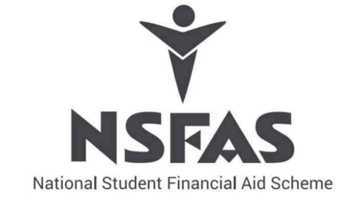
How to unlock an NSFAS account: Here is everything you need to know
The appeal takes at most 30 days. At times, it might take a shorter time. Nonetheless, NSFAS should not take more than one month to respond to your application.
NSFAS appeal form for 2024 closing date
The appeal process is set to open on the 1st of February. It closes on the 29th of February 2023. Therefore, ensure to tender your application on time.
Writing an NSFAS appeal letter does not guarantee that your application will be successful. However, doing so correctly by following the steps mentioned above increases the chances of your application being successful.
READ ALSO: Boland College online application, forms, courses, fees, requirements
Are you looking forward to joining a TVET college in South Africa ? Briefly.co.za published extensive details about Boland College . You should check them out.
These details about Boland College offer a guide for anyone thinking of joining the institution. You can scheme through the courses it offers, the application process, requirements and fees.
Source: Briefly News
Priscillah Mueni (Lifestyle writer) Priscillah Mueni is a lifestyle and entertainment content creator with more than 4 years of experience. She graduated from Meru University of Science and Technology with a Bachelor of Technology in Civil Engineering in 2019. In 2023, Priscillah finished the AFP course on Digital Investigation Techniques. She has been writing articles on Briefly.co.za since 2019. Email: [email protected]
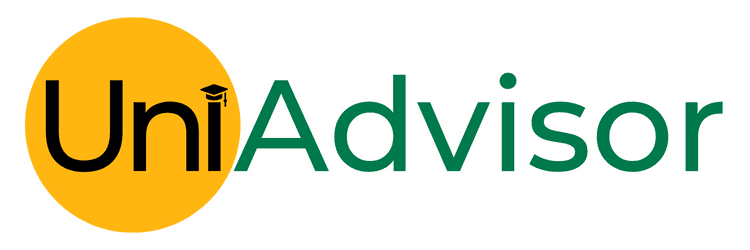
How to write an Affidavit for NSFAS? 2 Steps & an Example
If you are confused about how to write an affidavit for an NSFAS application, then you must refer to the following complete article. I will tell you exactly what an affidavit is, why you need it for NSFAS, and how to write it. I know it may sound a little confusing why they are asking for an affidavit just so you could apply for the NSFAS bursary. I have been there, too, and I know exactly what you are feeling right now.
But don’t lose faith. It may sound a little terrifying to you by its name, but it is just another form that you will have to fill out in front of the authorities and under oath. Of course, there is more to it than that, but that was just the gist of it. For further details, keep on reading the following article.
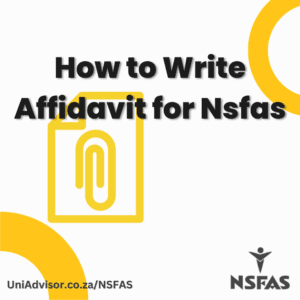
What Is An Affidavit?
Before we discuss anything, it is imperative to understand what an affidavit is and how it can be used for your own benefit for NSFAS. So, an affidavit is a voluntarily written legal statement by an affiant under oath. It is administered by an authorized person legally permitted to do so. In simple words, it is a written statement taken under oath and can be used as evidence in court.
Why Is an Affidavit Needed For NSFAS?
An affidavit is needed in those instances when you make an assertion but don’t have any proof to support your assertions. For instance, you want to apply for the NSFAS bursary but your legal guardians are not your parents.
In that instance, you will write an affidavit explaining the reasons why your legal guardians are not your parents and somebody else is supporting you. This declaration will be made in front of the Commission of Oaths and thus, it will be legally binding on the receiving party.
And this was just one example. There could be many reasons why you might be required to provide an affidavit when applying for NSFAS bursaries. Just keep in mind that you will only be required to provide an affidavit if there is no evidence to support your extraordinary claims.
How To Write An Affidavit?
In order to write an affidavit, you should first go to your nearest local police station and ask for an affidavit form. Write your full name, address, and ID number on top of this page. After that, fill out the declaration space on the form using block letters. Make sure to provide all the relevant information in that space.
Example Affidavit
AFFIDAVIT I, [Your Full Name], residing at [Your Full Address], do hereby make oath and say as follows: 1. I am the parent/legal guardian of [Student’s Full Name], who is applying for financial aid through the National Student Financial Aid Scheme (NSFAS). 2. I am aware of the financial situation of my household, and I am providing this affidavit to confirm the following details: a. My monthly income is approximately [Your Monthly Income] ZAR. b. I have [Number of Dependents] dependents living in my household. c. I am currently employed/self-employed as [Your Occupation]. d. I have attached copies of my recent bank statements and payslips as proof of my income. 3. I confirm that the information provided in the NSFAS application by [Student’s Full Name] is true and accurate to the best of my knowledge. 4. I understand that any false statements made in this affidavit or on the NSFAS application may lead to the rejection of the application and legal consequences. 5. I am aware of the importance of providing truthful and accurate information for the purpose of assessing my child’s eligibility for financial aid from NSFAS. 6. I hereby affix my signature to this affidavit on this [Date] day of [Month], [Year]. ________________________ [Your Signature] Sworn and subscribed before me on this [Date] day of [Month], [Year]. ________________________ [Notary Public or Commissioner of Oaths]
So, this was all from my side. I hope you found all this information very useful. Just make sure that you only use block letters when filling out the affidavit form. Plus, if your guardian or spouse or any other person is writing the affidavit for you, they must give your reference by name and ID number clearly while making the declaration.
- How to Change a Course at UNISA? 6 Easy Steps
- Is NSFAS a Bursary or Loan? Do You have to Pay NSFAS back?
- NSFAS Wallet | Guide to Login, Activate & Use it?
- How to get NSFAS Wallet OTP? Online using Portal

NSFAS Appeal Process for 2024; All you need to Know

The National Student Financial Aid Scheme (NSFAS) is committed to providing financial support to South African students pursuing higher education. However, sometimes circumstances arise that may impact the initial funding decision. If you find yourself in this situation, the NSFAS appeal process is there to help.
In this article, we will guide you through the crucial steps of the NSFAS appeal process for 2024, and all the relevant information you need.
What is the NSFAS Funding Appeal?
The NSFAS Funding Appeal is a process that allows students who have been rejected for NSFAS funding to request a review of their application. This means if your initial application for NSFAS funding was unsuccessful, you can appeal the decision and potentially have it overturned.
Who qualifies for NSFAS Appeal?
Students who fall under the following categories can appeal an NSFAS funding decision:
- Students whose initial application for financial aid was rejected: This covers any student who applied for NSFAS funding for the first time and received a rejection notification.
- Continuing students whose financial aid was withdrawn: This applies to students who previously received NSFAS funding but had it withdrawn for various reasons, such as not meeting academic progress requirements or changes in financial circumstances.
Therefore, as long as your situation falls under one of these two categories, you have the right to submit an appeal and request a review of your NSFAS funding decision.
Who cannot appeal?
Here’s a breakdown of the categories of students who cannot appeal an NSFAS funding decision:
1. Students enrolled in non-funded qualifications:
- NSFAS only funds specific qualifications at accredited institutions. If you’re enrolled in a program not supported by NSFAS, you are not eligible to appeal for funding.
2. Students exceeding the N+2 (or N+3) limit:
- NSFAS has a maximum funding duration for each qualification. “N” represents the standard number of years to complete the program, and “+2” signifies the additional years funded for unforeseen circumstances (e.g., failing a year). Students with disabilities receive an extra year (N+3).
- If you’ve already received NSFAS funding for the maximum duration (N+2 or N+3), appeals are not possible .
3. Gap year students previously denied for academic reasons:
- Students who took a gap year and were previously denied NSFAS funding due to not meeting the academic eligibility criteria cannot appeal this decision.
4. Issues related to institutional registration:
- If your institution failed to submit your registration record to NSFAS or submitted an incorrect record , this is not an appealable issue. You should contact your institution directly to resolve the registration problem.
How to write NSFAS appeal letter and form 2024
Here’s a guide to crafting a compelling appeal:
Structure and Content:
- Introduction: Briefly introduce yourself, state your ID number, and mention that you’re appealing the rejection of your NSFAS funding application or the withdrawal of your existing funding.
- Reason for Appeal: Clearly and concisely explain the reason behind your appeal. Be specific and factual, avoiding vague statements.
- Academic transcripts: If appealing due to improved academic performance.
- Proof of financial hardship: Documents like payslips, bank statements, or affidavits from family members demonstrating your financial need.
- Explanations for missing documents: If relevant, explain why specific documents were initially missing and provide them now.
- Any other relevant documentation: Anything that strengthens your case and justifies your appeal.
- Conclusion: Briefly reiterate your request for a review of your application and express your hope for a positive outcome.
- Signature: Include your full name, ID number, and date.
Additional Tips:
- Maintain a professional and respectful tone throughout the letter.
- Proofread carefully for any errors in grammar or spelling.
- Be clear, concise, and stick to the point.
- Focus on the most relevant information and avoid unnecessary details.
- Attach all supporting documents electronically in a clear and organized manner.
How To Submit Your NSFAS Appeal
You can submit your appeal electronically through the MyNSFAS portal.
Here’s a step-by-step guide to navigate the process:
Before You Begin:
- Gather Supporting Documents: Prepare any documents that strengthen your appeal case. This could include academic transcripts, proof of financial hardship, explanations for missing documents, or anything relevant to your appeal reason.
- Draft Your Appeal Letter: Write a clear and concise letter explaining your appeal reason, supporting evidence, and desired outcome. Ensure it’s professional and respectful. (See previous guide for details on crafting the letter)
Submission Process:
- Log in to MyNSFAS Portal: Visit https://my.nsfas.org.za/ and enter your ID number and password.
- Locate the “Appeals” Section: Look for options like “Appeals,” “Funding Appeals,” or similar terms depending on the portal layout.
- Initiate the Appeal Process: Click on the relevant button to start your appeal application. This might involve selecting the reason for your appeal and providing basic information.
- Provide Supporting Information: Carefully follow the instructions on the portal to upload your supporting documents. Ensure they are in a supported format (e.g., PDF, JPG) and within the allowed size limit.
- Attach Your Appeal Letter: Upload your well-written appeal letter as a separate document, clearly labeled for easy identification.
- Review and Submit: Carefully review all information and documents before submitting your appeal. Once satisfied, click the “Submit” or “Confirm” button to finalize your application.
- Submit Early: Don’t wait until the deadline, which is typically 30 days from receiving the rejection notification.
- Double-Check Everything: Ensure you’ve attached all required documents and that your appeal letter is included.
- Maintain a Record: Keep copies of your appeal letter, supporting documents, and any confirmation emails for your records.
After Submission:
- Expect a Response: The NSFAS appeals process can take several weeks. You might receive updates or requests for additional information via email or through the MyNSFAS portal.
- Monitor Your Portal: Regularly check your MyNSFAS portal for updates on your appeal status.
- A well-written appeal letter and strong supporting evidence significantly increase your chances of success.
- Seek guidance from your institution’s financial aid counselor or contact the NSFAS contact center for assistance if needed.
Documents You Need When Submitting A NSFAS Appeal?
Submitting the following documents alongside your appeal letter can significantly strengthen your case:
Essential Documents Needed:
- A well-written appeal letter: This is crucial and should clearly explain your reason for appeal, supporting evidence, and desired outcome. (Refer to previous guide for detailed instructions)
- Proof of identity: A certified copy of your South African ID document.
Supporting Documents (Depending on your appeal reason):
- Letters of recommendation from teachers or lecturers: Supporting your academic potential and progress.
- Payslips or income tax returns: Demonstrating your household’s financial situation.
- Affidavits from family members: Supporting claims of financial hardship if not employed.
- Letters from social workers or community leaders: Verifying your circumstances if applicable.
- Explanations for initially missing documents: Providing a reason for their absence and including them now.
- Any documents directly related to your specific appeal reason, such as medical reports, death certificates, or court orders.
- Ensure all documents are clear, legible, and in a supported format (e.g., PDF, JPG).
- Maintain a logical order and label your documents clearly for easy identification.
- Only submit authentic and verifiable documents.
How To Track Your NSFAS Appeal Status
Here’s how to track the status of your NSFAS appeal in 2024:
Method 1: MyNSFAS Portal:
- Log in: Visit the MyNSFAS portal at https://my.nsfas.org.za/ and enter your ID number and password.
- Navigate to “Appeals”: Look for options like “Appeals,” “Funding Appeals,” or similar terms depending on the portal layout.
- Date of submission
- Current status (e.g., “Pending,” “Under review,” “Decision made”)
- Any additional information or requests from NSFAS
Method 2: Contact NSFAS:
- Contact Center: Call the NSFAS contact center at 0800 067 327 or +27 11 680 1818 (international calls).
- Email: Send an email to [email protected] .
- Social Media: Reach out to NSFAS on social media platforms like Twitter or Facebook.
When contacting NSFAS, provide:
- Your ID number
- The reference number of your appeal application
- Briefly explain your inquiry about the status
- Regularly check your MyNSFAS portal for updates, as this is the most efficient method.
- Be patient, as the appeal process can take several weeks.
- Maintain a professional and respectful tone when contacting NSFAS.
NSFAS Appeals Process For Rejected Applications
If your NSFAS application for financial aid was rejected, you still have a chance to receive funding through the appeals process. Here’s what you need to know:
Eligibility:
- You can only appeal if your application was rejected . Appeals are not available for applications that are still under review or waiting for additional information.
- You must submit your appeal within 30 days of receiving your application results.
How to Submit an Appeal:
- Log in to your myNSFAS account: Visit https://www.nsfas.org.za/ and enter your login credentials.
- Track your application progress: Click on “Track Funding Progress” and check the status of your application.
- Submit an appeal: If your application shows as “unsuccessful,” you will see a “Submit Appeal” button. Click on this button to initiate the appeal process.
- Provide details and supporting documents: The online form will guide you through the process of explaining your reason for appeal and uploading relevant supporting documents. Be sure to choose the appropriate reason for your appeal and provide clear and concise explanations.
- Submit your appeal: Once you have completed the form and uploaded all required documents, click “Submit Appeal” to finalize your request.
Important points to remember:
- Strong Begründung: Clearly state the reason for your appeal and provide compelling evidence to support your claim. This could include documents such as payslips, affidavits, or letters from relevant institutions.
- Timeliness: Strictly adhere to the 30-day deadline for submitting your appeal. Late submissions will not be considered.
- Appeal outcome: You will be notified of the appeal decision via email or SMS. The process can take several weeks, so be patient and check your communication channels regularly.
- Alternative options: If your appeal is unsuccessful, explore other funding options such as scholarships, bursaries, or student loans.
How Long Does NSFAS Take to Respond to Appeals?
While NSFAS aims to respond to appeals within a specific timeframe, the actual processing time can vary depending on several factors. Here’s what you can expect:
Official Target:
- NSFAS strives to respond to appeals within 30 days of receiving them. This information is mentioned on their website and various resources.
Real-world Scenario:
- High volume of appeals received, especially during peak application periods.
- Complexity of individual cases requiring additional verification or investigation.
- Resource constraints within NSFAS affecting processing speed.
Recommendations:
- Be patient and allow more than 30 days for a response, especially if you submitted your appeal during a busy period.
- Regularly check your myNSFAS account and communication channels for updates on your appeal status.
- Contact NSFAS if you haven’t received any response after a significant amount of time beyond the expected timeframe. You can use their online enquiry form or call their contact center.
Remember, even though the official target is 30 days, it’s crucial to manage your expectations and understand that external factors can influence the actual processing time.
Disclaimer: This blog article is for informational purposes only and should not be considered official advice from NSFAS. Please refer to the official NSFAS website and resources for accurate and up-to-date information.
Source: nsfasappeal.za
Similar Posts

NSFAS Laptop : Steps to order & receive laptop from NSFAS
Are you a South African student in need of a laptop to support your studies? The…

What is the NSFAS limit?
NSFAS (National Student Financial Aid Scheme) is a government-funded scheme that provides financial assistance to undergraduate…

Does NSFAS Fund Sol Plaatje University Students?
Excited about embarking on a journey of knowledge and growth? Perhaps you’re already a student there,…

Does NSFAS Fund Cape Peninsula University of Technology (CPUT) Students and courses?
The Cape Peninsula University of Technology (CPUT) offers a wide range of exciting programs, but the…

Will a Student With A Partial Bursary Get NSFAS?
Financing your education can be challenging, and exploring various avenues to secure sufficient support is crucial….

Does NSFAS fund College of Cape Town Courses?
The National Student Financial Aid Scheme (NSFAS) provides financial support for eligible students attending public TVET…
- Home – Campus Africa
- Rennie House Apartments
- Amani 49 Jorissen
- 80 Jorissen
- Dunvista Mansions
Apply Online
- Notice Board
- News & Events
- November 21, 2023
NSFAS: A Step-by-Step Application Guide for Students

ENQUIRE NOW
8 Step Guide To Applying for NSFAS
Embarking on a journey through higher education can be exhilarating, but it also comes with its fair share of challenges, particularly when it comes to financing your studies. That’s where the National Student Financial Aid Scheme (NSFAS) steps in, offering a beacon of hope for many students. For those residing in the nurturing community of Campus Africa, located in the vibrant heart of Braamfontein and close to the Wits main campuses, understanding the NSFAS application process is crucial. This guide aims to illuminate the path to securing funding, ensuring that the dream of affordable, comfortable living and a robust education is well within reach.
Helpful Article: Essential Guide: What to Pack for a Comfortable Student Accommodation Experience
Step 1: Verify Eligibility and Prepare Documentation
Before diving into the application, ensure you meet NSFAS’s requirements. This may include criteria based on financial need, academic performance, and acceptance into an eligible institution. Gather all necessary supporting documents, such as your ID, proof of income, and academic records.
Step 2: Create Your myNSFAS Account
Visit the NSFAS website (www.nsfas.org.za) and create a myNSFAS account by clicking on the “Register” tab. You’ll need to provide personal details such as your ID number and contact information. Ensure the information matches exactly what is on your ID document to avoid any hiccups in the process.
Step 3: The Application
With your account set up, click on the “Apply” tab. Fill in the required sections with meticulous attention to detail. If you’re a current student, select your current academic level correctly. For those who’ve completed Grade 12, select the Grade 12 option. Upload all required documents where necessary – this step is paramount as incomplete applications can delay or derail your chance at funding.
Step 4: Submit and Track Your Application
After double-checking all entered information and attached documents, submit your application. You can track the status of your application through your myNSFAS account, ensuring that you stay informed of your application’s progress every step of the way.
For the students at Campus Africa, this guide is more than just instructions; it’s a roadmap to a secure future. With comfortable and furnished rooms, robust security, and a familial atmosphere, Campus Africa isn’t just a place to stay; it’s a community that supports its members through every facet of student life, including navigating financial aid. By following this step-by-step guide, Campus Africa students can apply for NSFAS funding with confidence, knowing they are taking the necessary steps towards their educational aspirations and beyond.
Step 5: Await the Outcome
Patience is key after submission. NSFAS processing times can vary, and it’s essential to regularly check your application status. Rest assured, Campus Africa will be there to support you through this waiting period with resources and guidance.
Step 6: Understanding the Funding Coverage
NSFAS funding is comprehensive, covering tuition fees, accommodation (like the affordable options provided by Campus Africa), transport, living allowances, and book costs. Familiarize yourself with what the funding entails to plan your finances accordingly.
Step 7: Accepting the NSFAS Bursary
Upon approval, you’ll need to accept the NSFAS bursary offer. This process is typically completed through the myNSFAS portal. Remember, this bursary is a pivotal step towards your educational development and is in alignment with Campus Africa’s mission to facilitate accessible education.
Step 8: Maintain Your Funding
NSFAS funding is contingent on academic performance. Campus Africa encourages a study-conducive environment to help you maintain the grades required to continue receiving financial aid.
In conclusion, the NSFAS application journey, while intricate, is a gateway to numerous opportunities. Campus Africa stands as an ally for students, providing a comfortable living space that fosters academic success. Through this detailed guide, we aim not just to direct you through the NSFAS application process but also to provide a supportive community where you can thrive both academically and personally.
By meticulously adhering to these steps and leveraging the supportive environment at Campus Africa, students are empowered to navigate the financial aid process successfully. It’s not just about securing funding; it’s about paving a path to a prosperous academic journey in the heart of Braamfontein.
See Also: NSFAS FAQs
More From Capus Africa

The Ultimate Guide to Navigating Public Transport In Johannesburg
A Helpful Guide For Navigating Public Transport in Johannesburg | Student Edition Braamfontein buzzes with the energy of students and professionals alike, and for those calling Campus Africa home, the need for a reliable, affordable, and efficient way to traverse the urban jungle of Johannesburg is paramount. This guide...

8 Step Guide To Applying for NSFAS Embarking on a journey through higher education can be exhilarating, but it also comes with its fair share of challenges, particularly when it comes to financing your studies. That’s where the National Student Financial Aid Scheme (NSFAS) steps in, offering a beacon...

Essential Guide: What to Pack for a Comfortable Student Accommodation Experience
What to Pack for Student Accommodation: The Essential Checklist for Campus Africa Residents Embarking on your university journey is an exhilarating milestone. As you prepare to move into student accommodation like Campus Africa, situated near the Wits main campuses, packing might seem daunting. But fear not! Here’s your essential...


Brilliant Student Living Strategies to Maximize Your Space
How to Maximize Your Student Living Space: Universal Tips with a Campus Africa Twist Whether you’re settling into a cozy corner of Campus Africa or gearing up for dorm life elsewhere, the quest for a functional and inviting student living space is universal. Here’s how you can transform any...

Essential Reasons Why Living Close to Campus Enhances Your College Experience
Why Live Close to Campus? The Benefits of Short Commutes for Wits and University of Johannesburg Students Living close to your university campus isn’t just a matter of convenience; it’s a strategic choice that can profoundly impact your academic success and overall quality of life. For students at Wits...

Academic Performance Enhancement And How Student Accommodation Boosts It
The Impact of Student Accommodation on Academic Performance: A Look Inside Campus Africa The pursuit of academic performance is often intertwined with the quality of a student’s living environment. At Campus Africa, located in the heart of Braamfontein and in close proximity to the Wits main campuses, the impact...

CAMPUS AFRICA LIFESTYLE – OUR 7 RESIDENCES
Whether you are just starting out your exciting university experience or are already settled into your academic routine, Campus Africa has the fun, affordable, welcoming student accommodation you’ve been searching for. Located in the heart of Braamfontein with easy access to the Wits and UJ campuses, Campus Africa offers both...

2024 Campus Africa Bus Schedule
Our bus schedule is updated regularly, please keep an eye out on this page for the latest schedule. The Campus Africa bus operates from Monday to Friday, 6am until 10:30pm. The bus collection points are our Rennie House Apartments, Wynton Joy, YMCA, Braamlofts and 49 Jorissen residences, and UJ APB/APK...

NSFAS Accredited Accommodation Requirements for Success
University housing is in short supply in comparison to the number of students who need it. To satisfy the growing demand for student housing, NSFAS Accredited Accommodation providers like Campus Africa sprung up. In South Africa, tenants and college students have many inquiries about how rental property can be NSFAS-approved...

Vital Role: Accommodation Environments in Boosting Student Mental Health and Wellbeing
The time you spend at university accommodation is one of the most significant periods in your life and depending on where you live during this time, your experience can vary widely. Most people who study abroad, or even those that don’t, live in some kind of student accommodation near the...
Download our handy app to stay up-to-date with the latest Campus Africa notices & events, report & track maintenance requests, & more!
Subscribe to our mailing list
Campus Africa
If you’re looking for a place of learning and fun to grow and express yourself, then Campus Africa is your home.
What’s Hot
010 109 1700
071 999 1246
Campus Africa – All Right Reserved | SEO By Versys Media

Resources teachers, parents and learners can use!
Appeal Your NSFAS Rejection: Step-by-Step Guide
Navigating the National Student Financial Aid Scheme (NSFAS) can be daunting, especially if your application’s been declined. But don’t lose heart – an appeal could be your ticket to securing the funding you need. Understanding the appeal process is crucial to overturning that initial decision.
If you find yourself puzzled about where to start, you’re not alone. Many students face hurdles in accessing financial aid, yet aren’t aware of the steps to take when appealing. It’s important to know that the NSFAS has a structured appeals process in place, designed to ensure that every student’s case is fairly reviewed.
Armed with the right information and a clear strategy, appealing your NSFAS decision can be a straightforward task. We’ll guide you through the essentials, helping you prepare a solid case to secure the support you deserve for your academic journey.
Understanding the NSFAS Appeals Process
When a student’s application for financial aid through NSFAS is not successful, understanding the appeals process is the first step to potentially reversing that decision. The appeals process for NSFAS is designed to be transparent and accessible, ensuring that every student gets a fair opportunity to have their application reconsidered.
Students must start by submitting a formal appeal to the NSFAS. This appeal must include:
- A completed appeal form
- A letter of motivation explaining the reasons for the appeal
- Any relevant supporting documentation
The NSFAS has strict deadlines for the submission of appeals. Students usually have a 30-day window from the date of receiving the initial decision. Time is of the essence, so it’s critical to act promptly and gather all the necessary information and documents.
Once submitted, the NSFAS reviews the appeal, a process that may take several weeks. They scrutinize the new information provided and check for any discrepancies or errors in the original application. The appeal is assessed based on merit and adherence to NSFAS policies.
Students should consistently check the status of their appeal online through the NSFAS portal. Staying informed prevents needless worry and ensures that they are aware of the outcome as soon as it’s announced. If additional information is required, NSFAS may contact the student, which underscores the importance of providing up-to-date contact information.
In the event that the appeal is successful, the NSFAS makes the necessary adjustments to the student’s profile and financial aid is granted. If the appeal is unsuccessful, students retain the right to seek further clarification or to re-apply in the next funding cycle, equipped with insights gained from the feedback of the appeals committee.
The transparency of the NSFAS appeals process gives students the reassurance that their cases are taken seriously and judged fairly. With the right preparation and thoroughness, students have a genuine chance to secure the financial aid they need to pursue their academic goals.
Common Reasons for NSFAS Application Rejection
The journey to securing financial aid through the National Student Financial Aid Scheme can sometimes be fraught with challenges, one of which is having one’s application rejected. It’s essential for students to be aware of the common pitfalls that can lead to this disappointment.
Incomplete Application Forms : One of the primary reasons applications are denied is due to incomplete information. The NSFAS requires detailed personal and financial details, which must be filled out clearly and fully. Missing data can halt the entire process.
Failing to Meet Academic Requirements : NSFAS stipulates certain academic achievements for eligibility. Students who don’t meet these marks may find their request for funding denied. Consistent academic performance is key, as past and present school records are reviewed.
Income Threshold Exceeded : The NSFAS has set income criteria to ensure that only students from genuinely needy backgrounds receive aid. Applications often get rejected if the combined household income is above the maximum threshold set by the scheme.
Non-Citizen Status : The scheme is designed to support South African citizens or permanent residents. Applications from students without valid proof of citizenship or permanent residence are not considered.
Here are some more factors that could lead to NSFAS application rejection:
- Outdated or False Information : Submission of untruthful or expired documentation can result in disqualification.
- Previously Funded : Students who have already received NSFAS funding for a previous qualification may not qualify again, depending on individual funding caps.
- Failing to Sign The Consent Form : It’s mandatory for applicants to sign the NSFAS consent form, allowing the scheme to verify household income and other provided information.
Understanding these reasons for rejection allows students to rectify issues before they re-apply or submit an appeal. By taking the necessary steps to address these common issues, students increase their chances of application success. With each submission, precision and thoroughness are vital, and staying informed about NSFAS policies is a must.
Step 1: Review the Rejection Letter
When they’ve received a rejection letter from the National Student Financial Aid Scheme (NSFAS), it’s crucial for students to closely review the document. The rejection letter usually states the specific reasons why the application was unsuccessful. Understanding the grounds for rejection is the first step in mounting a successful appeal.
Key Areas to Focus On:
- Ineligibility Reasons: Assess the reasons for ineligibility. These can range from administrative errors to failing to meet the NSFAS criteria.
- Deadline Dates: Take note of any mentioned deadlines for the submission of an appeal. Missing these dates can mean forfeiting the chance to appeal.
- Required Documents: Identify any documents the rejection letter may reference. Missing or incorrect documents are common issues that can be rectified.
It’s advised that students don’t rush this process. By methodically going through the rejection letter, they ensure that they grasp why NSFAS denied their application. Only after comprehensively understanding the points raised should they proceed to the next stage of the appeal process.
Potential Discrepancies to Look For:
- Academic performance: Confirm that grades and academic records are up-to-date.
- Household income: Double-check figures to ensure they align with NSFAS thresholds.
- Personal information: Validate personal details like identification numbers and addresses.
Rectifying simple errors or providing additional information might be all that’s needed to turn the rejection into an approval. Students are encouraged to gather any new or supporting information that counters the NSFAS decision effectively.
After gathering sufficient information and understanding the context of the NSFAS rejection, students are better positioned to write a compelling appeal. This thorough review significantly increases the chances that the appeal will address the correct concerns, leading to a potentially successful outcome.
Step 2: Gather Supporting Documentation
Once you’ve pinpointed the reasons behind your NSFAS rejection, the next vital step is to gather all the relevant supporting documentation. This process is crucial as it strengthens your appeal and provides clear evidence to counter the reasons for your application’s initial rejection.
Begin by listing the documents that directly address the issues raised in your rejection letter. Typically, these may include :
- Proof of household income
- Academic records
- Identification documents
- Statements of financial needs
- Medical reports, if applicable
Make sure that all documents are up to date, especially those pertaining to your income or educational progress. For instance, if your appeal is based on a change in your financial situation, a recent payslip or unemployment documentation will be vital.
In circumstances where medical conditions are a factor, a detailed and recent medical report can make a significant difference. It’s also beneficial to include any relevant academic achievements that could showcase your potential and commitment to your studies.
Ensure the authenticity of your documents; NSFAS takes the verification of information seriously. Fraudulent or altered documents will not only weaken your appeal but could potentially disqualify you from receiving funding.
Secure letters of recommendation or support if they might help clarify your case. Such letters could be from community leaders, school officials, or anyone in a reputed position who can vouch for your character and situation.
Maintaining organisation throughout this process cannot be overstated. Create a checklist and tick off each document as you compile them. All the paperwork should be clearly labelled, easy to read and in the correct order as required by NSFAS.
Critical Deadlines must not be ignored. Compile and submit the supporting documents within the timeframe given by NSFAS for the appeal process. Late submissions could be disregarded, diminishing the possibility of your appeal being considered.
By gathering complete and correct documentation, you’re setting a robust foundation for your appeal. This meticulous approach displays your dedication to rectifying the initial rejection and improving your chances significantly.
Step 3: Prepare Your Appeal Letter
When crafting an appeal letter to NSFAS, precision and clarity are paramount. The letter should begin with the student’s full name, student number, and contact information, followed by the date and the address of the NSFAS appeals office. It is critical to reference the specific rejection letter received, including any relevant dates or reference numbers.
The main body of the letter should concisely articulate the grounds for the appeal. Here, students must address the reasons for their NSFAS rejection, point by point, and counteract these with supporting evidence. It’s essential for students to remain factual and respectful throughout the letter.
Key components of an effective NSFAS appeal letter include:
- A clear subject line stating the purpose of the letter
- A polite and courteous tone, regardless of the disappointment felt
- Detailed explanations for any circumstances that have led to financial changes or academic challenges
- Relevant attachments or evidence that further substantiate the appeal
Supporting evidence may encompass a range of documents, such as updated proof of household income or new academic achievements. A well-substantiated claim often includes a compelling personal statement detailing the student’s academic goals, financial constraints, and how the funding will assist in overcoming barriers to education.
It’s advisable for students to have their appeal letter reviewed by a third party, such as a financial aid counsellor or a trusted teacher, to catch any errors and ensure that the argument is clear and compelling.
Finally, the appeal letter should be signed by the student, reinforcing the personal nature of the request. By completing these steps meticulously, students can create a strong appeal letter that accurately conveys their circumstances and resolutely requests reconsideration from the NSFAS review board.
Step 4: Submit Your Appeal
After carefully crafting the appeal letter and ensuring all the supporting documents are in order, the next crucial step is submitting the appeal. Students should remember that deadlines are non-negotiable and submissions must be made within the timeframe outlined by the NSFAS. Missing the deadline can result in an automatic denial of the appeal.
The National Student Financial Aid Scheme generally offers a specific online portal for appeals. Accessing this portal requires students to log in using their credentials. Once logged in, they’ll find a section dedicated to appeal submissions. Here, students must upload their letter along with all appropriate supporting documents. Ensuring the documents are clear and scannable helps in presenting a case that’s easy for the NSFAS review board to assess.
For those who prefer or require an offline submission, NSFAS often has an email or physical address allocated for appeals. If sending via email, attach all documentation as PDFs to maintain the integrity of the files. For physical submissions, it’s best to make copies of all documents and the appeal letter, keeping the originals for personal records.
Students are encouraged to confirm receipt of their appeal once submitted. If by email, a delivery confirmation can act as proof of submission. With physical mail, registered mail services can provide a tracking option and confirmation of delivery. Confirmation is crucial as it provides students with evidence should there be a discrepancy about their submission.
Record-keeping is also important. Students should keep a copy of the submitted appeal letter, all documents sent, and any confirmation receipts. This careful administration not only provides peace of mind but also prepares for any future enquiries.
By following these steps and submitting the appeal meticulously, students stand a better chance of having their application reconsidered. They’re also demonstrating their commitment to the importance of education and their dedication to accessing the financial aid that could make it possible.
Step 5: Follow Up on Your Appeal
After submitting their NSFAS appeal, it’s crucial that students proactively follow up to ensure their appeal is being processed. Checking the status online through the NSFAS portal is often the most efficient method. Students should log in regularly to track any updates or changes. If the portal doesn’t reflect their current status, they shouldn’t hesitate to reach out.
Contacting NSFAS directly can provide students with peace of mind and additional information. They can do this by calling the toll-free hotline or sending inquiries via NSFAS’s official social media platforms . However, they must be prepared to provide their reference number and other personal details to facilitate the inquiry.
Students should also consider:
- Reaching out to their institution’s financial aid office for assistance
- Keeping an eye on their email and SMS notifications for any communication from NSFAS
- Keeping a meticulous record of all correspondences for future reference
- Being patient yet persistent as appeal processes may take some time
If students find that their appeal remains unresolved or they have not received a response within a reasonable timeframe, escalating the issue may be necessary. This involves contacting higher authorities within NSFAS or seeking guidance from student support services available at their institution.
It’s essential for students to stay informed about the NSFAS appeal process timelines, as these can vary year by year. By doing so, they ensure they’re within their rights to query the progress of their appeal and take any additional action if required. Engaging with NSFAS and their institution during this period is key to staying on top of the appeal process, and ultimately, helps students secure the financial support they need for their academic journey.
Dos and Don’ts for NSFAS Appeals
When dealing with the National Student Financial Aid Scheme (NSFAS) appeals process, it’s crucial to understand the fine line between proactive steps and potential pitfalls. Getting it right could mean the difference between securing funding and missing out on crucial financial assistance.
- Read the rejection letter carefully : Each rejection has specific reasons, and addressing them directly improves the chances of a successful appeal.
- Prepare all relevant documentation : Before starting the appeal, gather any supporting documents such as academic records, proof of household income, or proof of change in financial circumstances.
- Meet the deadlines : Appeals have strict deadlines which, if missed, could jeopardize the entire process.
- Follow the prescribed format : Filling out appeal forms correctly ensures that the information is clearly communicated to NSFAS.
- Maintain clear communication : Keep a record of all correspondence with NSFAS for future reference.
- Wait too long to start the appeal process : Procrastination could lead to missing the deadline.
- Submit incomplete forms : All sections of the appeal form must be completed accurately.
- Overlook email and SMS notifications : Important updates and instructions are provided through these channels.
- Neglect to update personal information : Outdated or incorrect contact information can lead to missed communications.
- Hesitate to ask for help : If there’s any confusion about the process, contacting NSFAS or the financial aid office for guidance is crucial.
By following these guidelines, students can navigate the NSFAS appeals process with greater confidence and improve their chances of a favourable outcome. Remember that persistence and attention to detail are critical components of submitting a compelling appeal.
Appealing an NSFAS rejection can be a daunting task but with the right approach students stand a better chance of turning the decision around. It’s essential to act promptly and with precision ensuring every step of the process is meticulously followed. Armed with a clear understanding of the reasons behind the rejection and the necessary documentation students can present a strong case. Remember it’s about presenting the facts clearly and concisely while adhering to the guidelines set forth by NSFAS. Patience and persistence are key and with these students can navigate the appeal process successfully.
Frequently Asked Questions
What steps should i take immediately after receiving a rejection letter from nsfas.
After receiving a rejection letter from the National Student Financial Aid Scheme (NSFAS), review the letter carefully to understand the specific reasons for the rejection. Then, gather the relevant supporting documentation for your appeal.
What are the key dos and don’ts for appealing a NSFAS rejection?
Dos: Read the rejection letter carefully, prepare all relevant documentation, adhere to appeal deadlines, follow the prescribed format, and maintain clear communication. Don’ts: Avoid procrastination, submitting incomplete forms, overlooking email and SMS notifications, neglecting to update personal information, and hesitating to ask for help.
What should I avoid doing when appealing my NSFAS rejection?
Avoid delaying your appeal (procrastination), submitting incomplete appeal forms, overlooking communications like emails and SMS from NSFAS, neglecting to update your personal details, and hesitating to reach out for assistance if you need it.
How can I improve my chances of a favourable outcome in the NSFAS appeals process?
To improve your chances, adhere strictly to the appeals process guidelines: provide complete and accurate documentation, meet all deadlines, ensure your contact information is up-to-date, and stay engaged with any NSFAS communications.
Is it important to adhere to the appeal deadlines?
Yes, meeting the appeal deadlines is crucial. Failing to submit your appeal within the specified timeframe may result in the rejection of the appeal and the loss of an opportunity to receive funding.
How To Write NSFAS Appeal Letter
National Student fund aid scheme has its acronym as NSFAS; This is a government institution set up to support those who have completed high school and looking forward to enrolling in tertiary education. The institution has expanded its territories by supporting students in the Public universities and the TVET. Now, let’s dive into how to write an NSFAS appeal letter.
What Is NSFAS Motivational Appeal Letter?
NSFAS motivational appeal letter is a letter written to NSFAS to reconsider when a student is revoked from NSFAS funding policy due to poor academic performance or any other substantial reason.
Irrespective of your application, the NSFAS takes into account the performance of students. There are so many factors the NSFAS may look at before revoking your funds and not just poor academic performance.
How do I appeal NSFAS?
Two sets of people are allowed to appeal NSFAS regarding funding. And these include the continuing students/Senior students and freshers/New students.
To Appeal NSFAS, login into your NSFAS account, which you used to submit your application. Click the “Track application progress tab” to view the application status .
You should find an “appeal button” below, supposing your application was unsuccessful.
Click the appeal button” and go through your application process again to provide the required information and attach all support documents . There are no closing dates for appeals; This is the more reason why to always login into our account to double check your application status.
How do I write an NSFAS appeal letter?
You are only required to write an NSFAS appeal letter when your application is rejected or does not go through. In normal circumstances, appeal letters are written to a board or the decision maker to assess and amend a decision. There are many reasons that could be given out.
Writing an NSFAS appeal letter can be a bit disturbing, knowing that your application was unsuccessful and could even discourage you. But you need to know that it’s a step that could be very positive for you.
Before you write the NSFAS appeal letter, you must be in the right state of mind, go through your applications once again, and take notes. This pro-activeness will give you a different sense of direction in writing your letter.
To write the NSFAS appeal letter, visit the NFSAS website with the URL www.nsfas.org.za , look into the tab, and download the “appeal” form.
It is important to print out the form after downloading. Make sure to fill all required spaces in the capital. As part of submitting your NSFAS appeal letter, make sure to write a letter stating the various reasons the board should consider giving you financial aid. The letter should be free from errors and must contain the right address and subject. You can either do a handwritten letter or type and sign accordingly.
Submit these documents to the financial aid office at your institution once all is completed.
Documents needed for NSFAS appeal
This is an ultimate question that needs the correct answer. Finding this information can prevent you from a refusal regarding your NSFAS appeal.
The documents needed for NSFAS appeals may include but are not limited to;
- A certified copy of identification.
- Complete academic transcript for the semester you have covered.
- Proof of income which could be a payslip or recruitment letter,
- Guardian or parents’ Identification document.
- Medical records.
- Disability form.
- Death certificate of guardian or parents, if any, and signed consent form .
Your appeal will not be considered without the above documents.
Why Do You Need To Write NSFAS Appeal Letter
Writing an NSFAS appeal letter is a step in ensuring your application is assessed and considered. You may have submitted your application on the NSFAS portal , but upon checking, you saw your application had been indicted unsuccessful. The need for you to appeal should arise once you have no option but to get funds from NSFAS to support your financial life while in tertiary. NSFAS demands students write an appeal letter providing information and any reason beyond doubt why their financial aid application should be approved. You only need to write this letter as soon as you find your application has been marked unsuccessful on the portal.
How long do NSFAS appeals take?
Because of the large number looking to get funds from NSFAs, the appeal process may take a while. Ideally, applicants should wait at least 30 days to get a response once an appeal has been submitted.
NSFAS appeal closing date
The National student fund aid scheme has confirmed to all stakeholders that there is no closing date for appeal, and this is subject to this academic year.
NSFAS Motivational Appeal Letter Sample
“ Addressing to “
“ Your address “
Dear Sir/Madam
Letter of motivation for student Bursary
As part of my goal to further my education, I applied for a course at the University of South Africa. I was offered admission to pursue a Bachelor of Arts In Political science. Currently, I am in my final year at UNISA, and it has been a great challenge trying to pay for my fees and other expenses. The financial status of my parents is hindering me from completing my final year at UNISA.
Looking at the financial situation at the moment, I may not be able to pay for the fees and other expenses. Therefore I am applying to your noble institution to get the financial assistance that will enable me to pay for my subsequent fees and all necessary expenses.
I am very passionate and dedicated to my academic work. All my academic records can prove that I have been outstanding. I believe my academic portfolio can serve as proof when I present it to your outfit for further assessment and consideration.
Attached to this letter is a copy of all the required documents for your perusal. I will be delighted if you can assist with the payment of my full fees and other expenses, which will help me achieve my greatest goal of obtaining a degree in political science.
Thank you for your kind consideration, and looking forward to hearing from your noble institution.
Yours Faithfully,
“name”
Why NSFAS Rejected Applications
NSFAS has no interest in rejecting applications. Every organization has its policies and regulations that must be followed. Rules are meant to be followed, and there will be no excuse to bend these rules for any individual.
NSFAS will only reject your applications if the information provided does not coincide well. Your applications can be rejected by NSFAS when you do not follow the procedures and submit all required information.
Who Qualifies for an NSFAS Appeal?
The NSFAS appeal is all about giving you another chance to get your application reconsidered and approved. Only those who have unsuccessful status on their application can appeal to NSFAS. Reasons may be unavailable academic records and financial ineligibility.
The reason why NSFAS will stop funding
NSFAS, as a credible institution, seeks to ensure applicants follow the rules and provide accurate information for financial aid. Reasons that will make NSFAS stop funding could be when you do not oblige to their rules or default their terms. Here are a few reasons to look at;
NSFAS can stop funding;
- If you do not meet the requirement of your institution
- Providing false information
- Being a non-citizen of South Africa
- Failing or going below the required academic requirement module
- Not providing the required documents.
- A change(mainly rise) In household income
- Deferring your academics for some reasons
One must read the guidelines and conditions of the NSFAS funding scheme to avoid such a situation.
How to Appeal NSFAS Rejection?
- To know your status, login into your NSFAS account.
- Locate and click the track funding tab
- Look into the application process tab
- Click submit appeal once you see your application has been marked unsuccessful.
- Write your motivational appeal letter of not more than five paragraphs stating the obvious reasons why your application should be approved.
- Please find all the required documents and submit them together with your letter to the Aid office of your institution.
Keep Reading
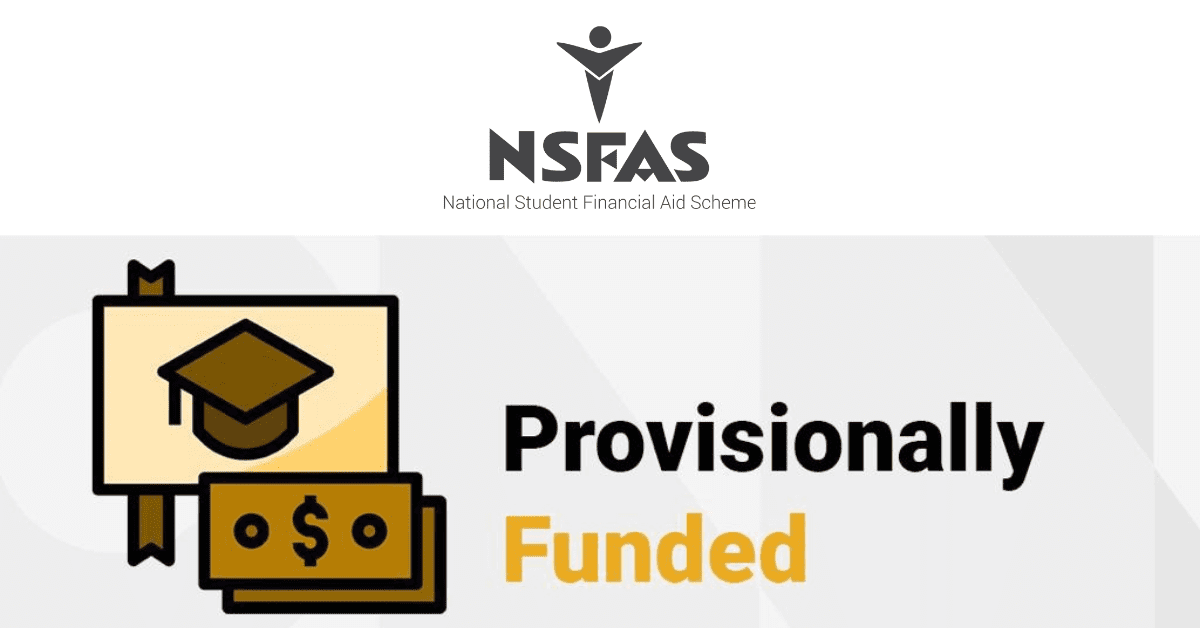
What Does Provisionally Funded Mean (NSFAS)?
Today we will walk you through everything you need to know about this NSFAS status and what’s needed from you when you see it. What Does Provisionally Funded Mean

How Many Months Does NSFAS Give Allowance?
Students get allowances from NSFAS for ten months. NSFAS pays student allowances during the first week of each month
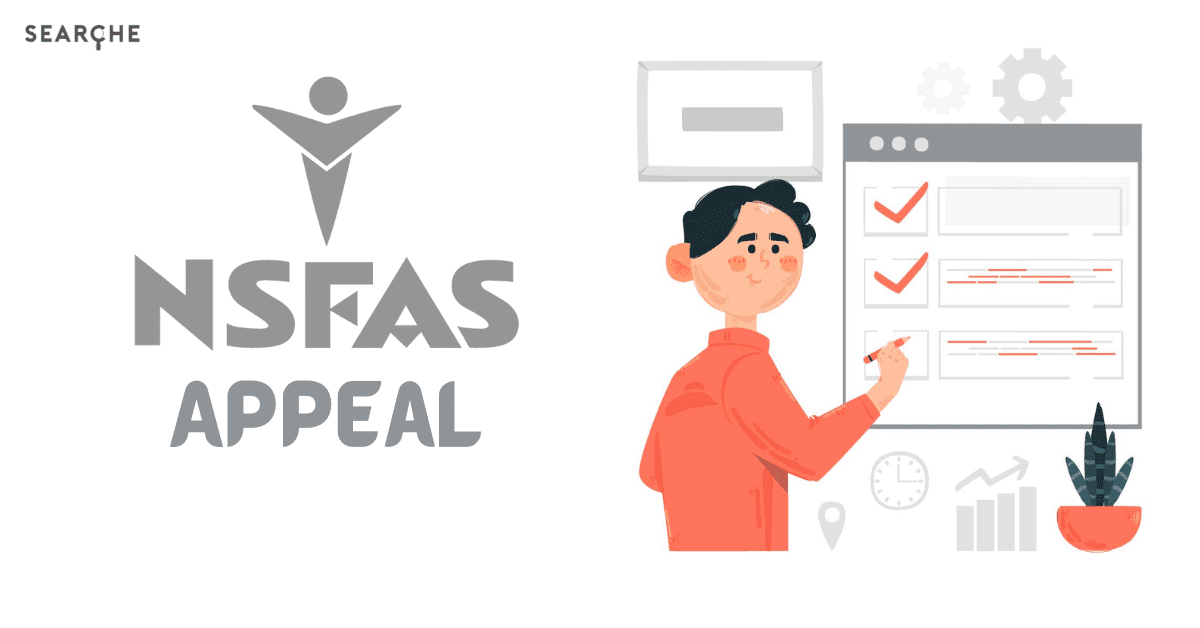
How To Write NSFAS Appeal Form
The NSFAS Appeal Form/Letter is an important part of the appeal process that sets in the event where an application for funding has been rejected by NSFAS
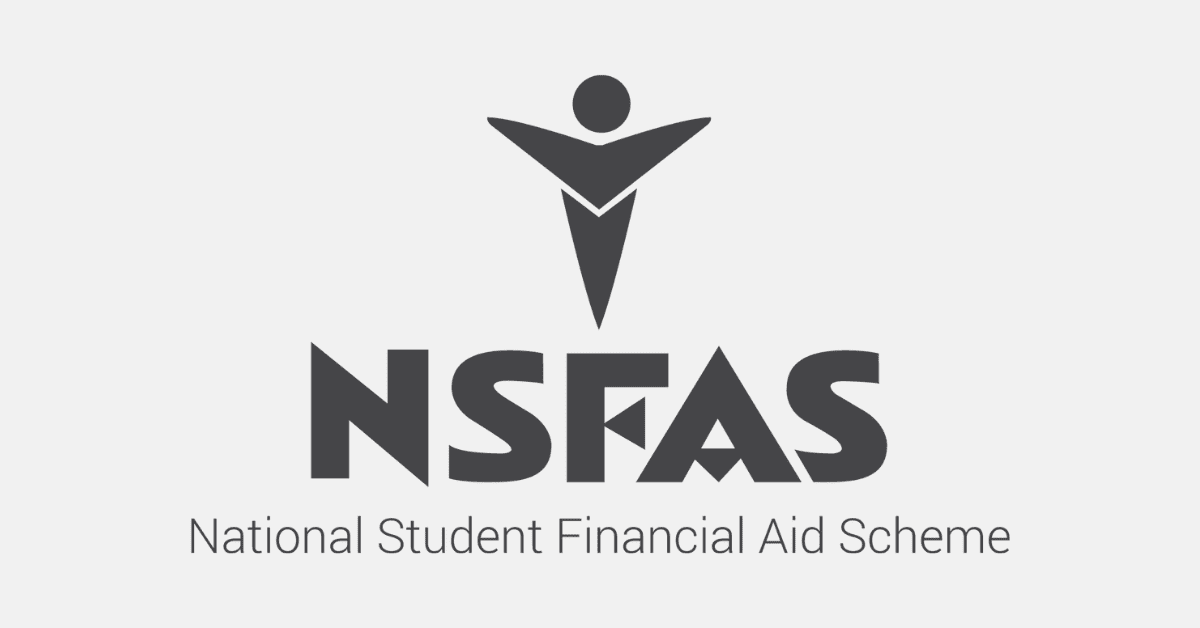
What is NSFAS?
What is NSFAS? NSFAS helps undergraduates who cannot afford tertiary education, enabling students to contribute to the country's development.
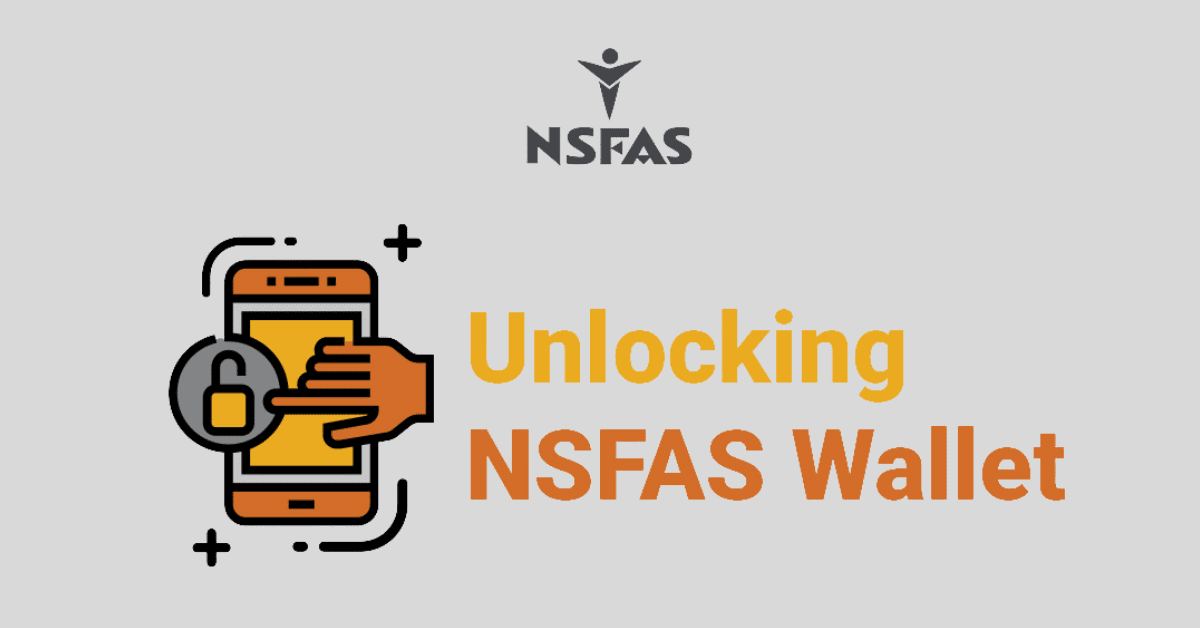
What to Do When Your NSFAS Account Is Locked?
What to Do When Your NSFAS Account Is Locked? Which is why this article was written to help you when your NSFAS account is locked.
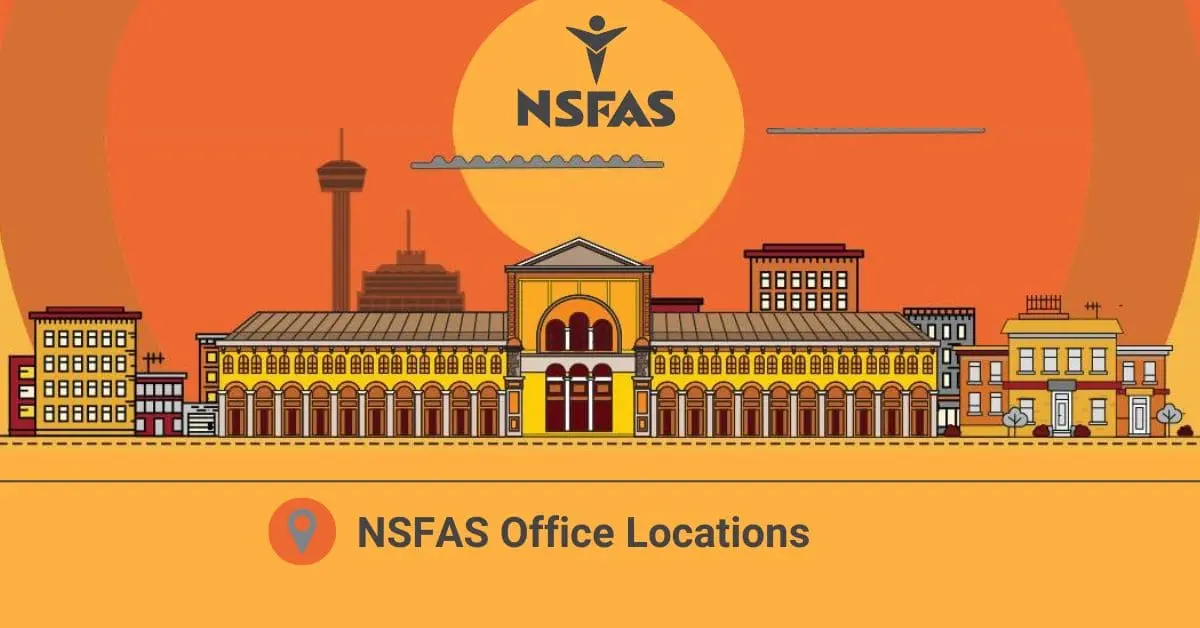
Where Are NSFAS Offices Located?
Knowing where the nearest physical NSFAS office is located can help you in the appeals process, the topic that shall be explored in today’s article.
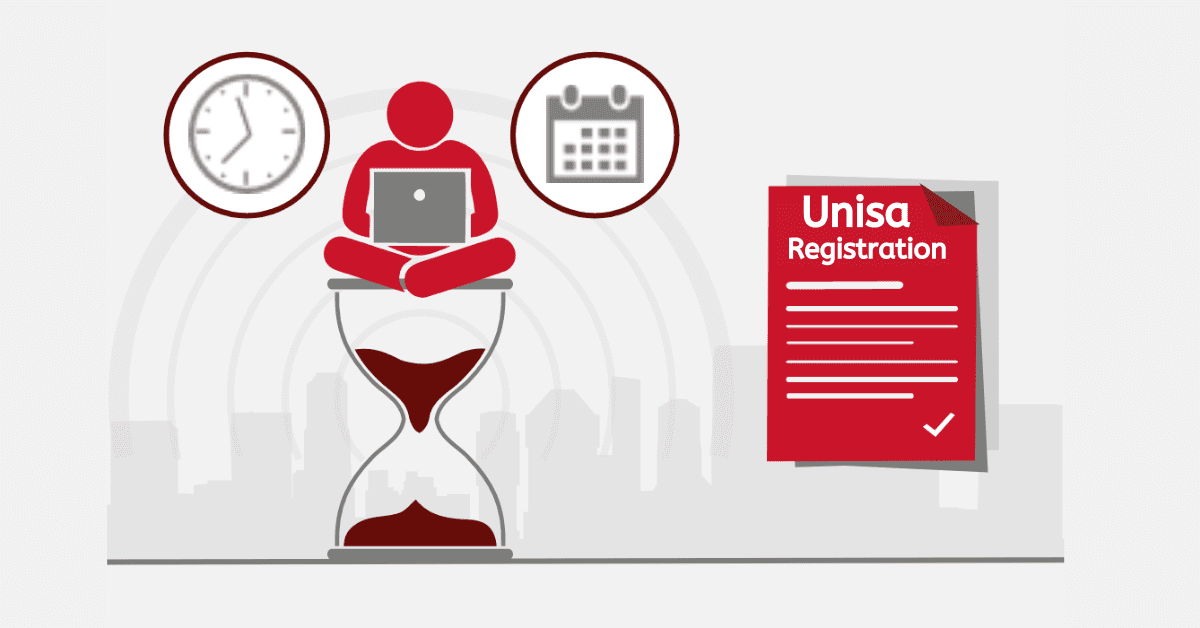
How to Check Unisa Registration Status
Do you want to know how to check the Unisa registration status after applying? Read on to find out, among other useful information.
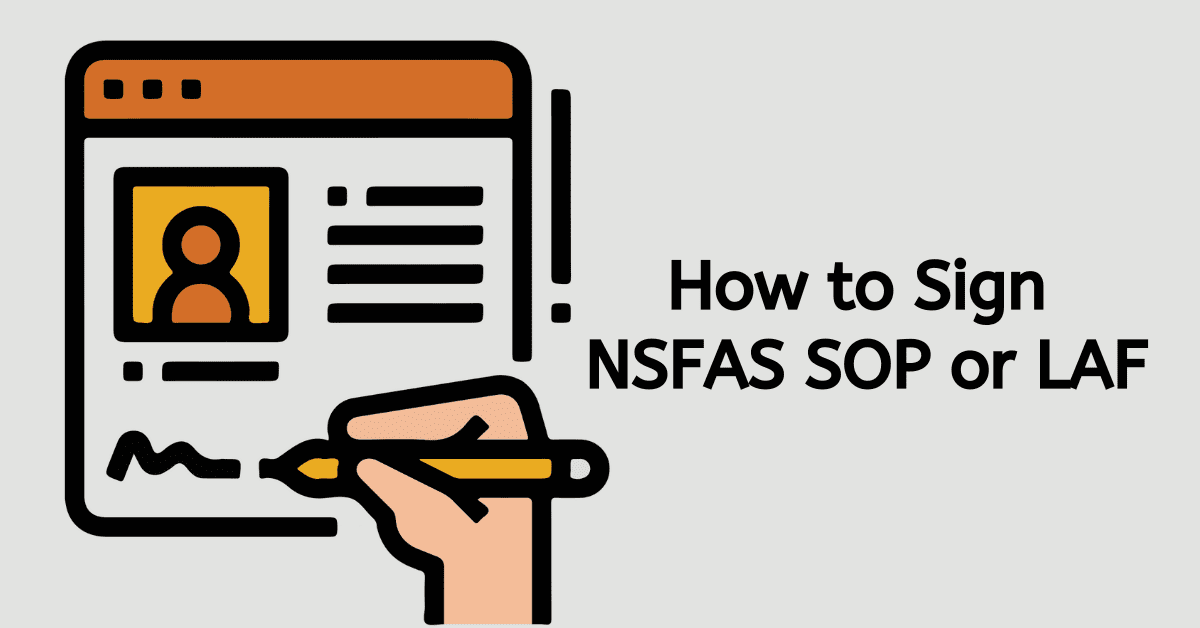
How to Sign NSFAS SOP or LAF
In this article, we will be looking at what SOP/LAF means, how to sign an NSFAS SOP or LAF, and any other issues relating to the LAF/SOP.

A Comprehensive Guide About NSFAS N+2 Rule
A Comprehensive Guide About NSFAS N+2 Rule. If you want to learn more about the N+2 Rule, this guide is for you.
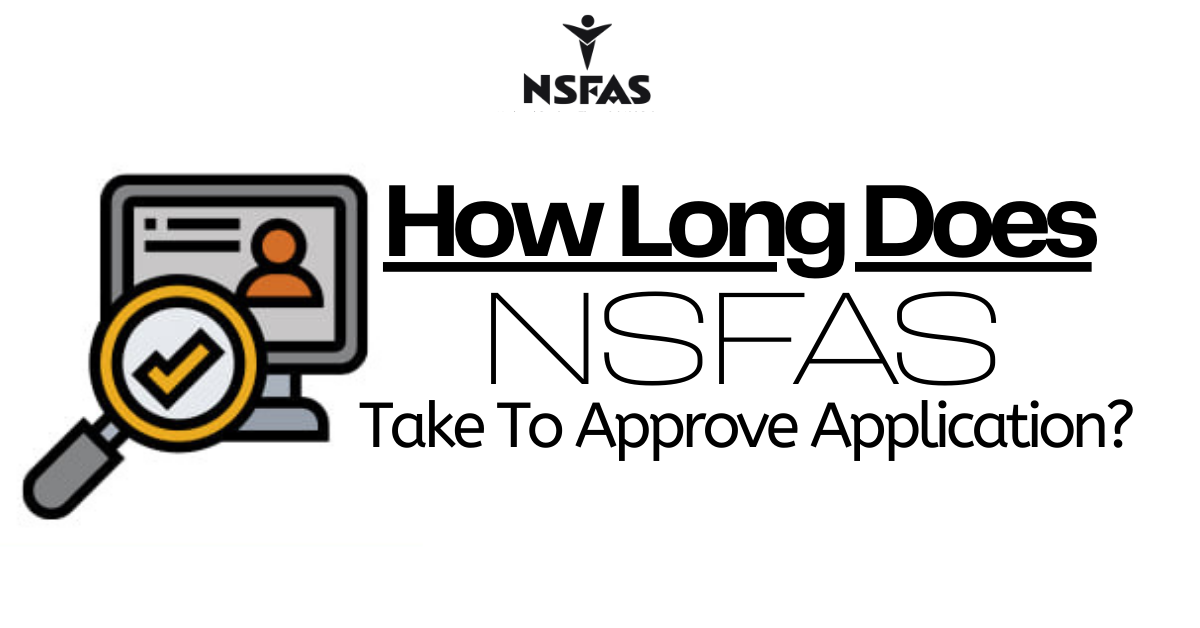
How Long Does NSFAS Take To Approve Application?
On average, it takes days to a few weeks for your application to be reviewed by someone in the NSFAS office.
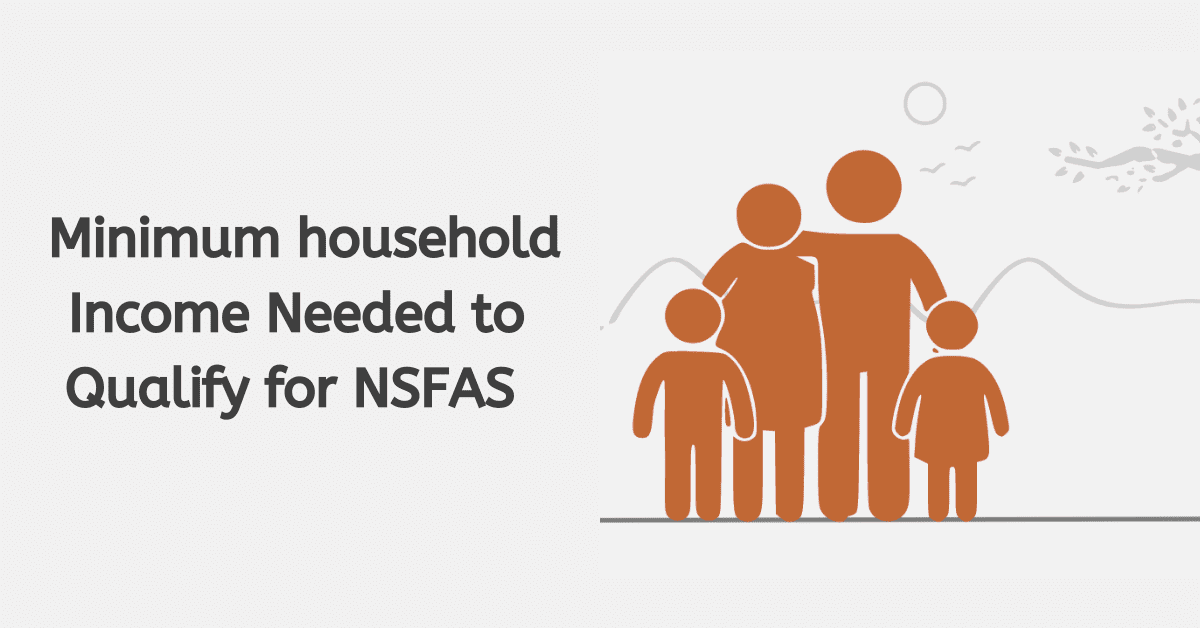
How Much Must Your Parents Earn To Qualify For NSFAS?
This article will cover the minimum household income needed for students eligible for NSFAS assistance.
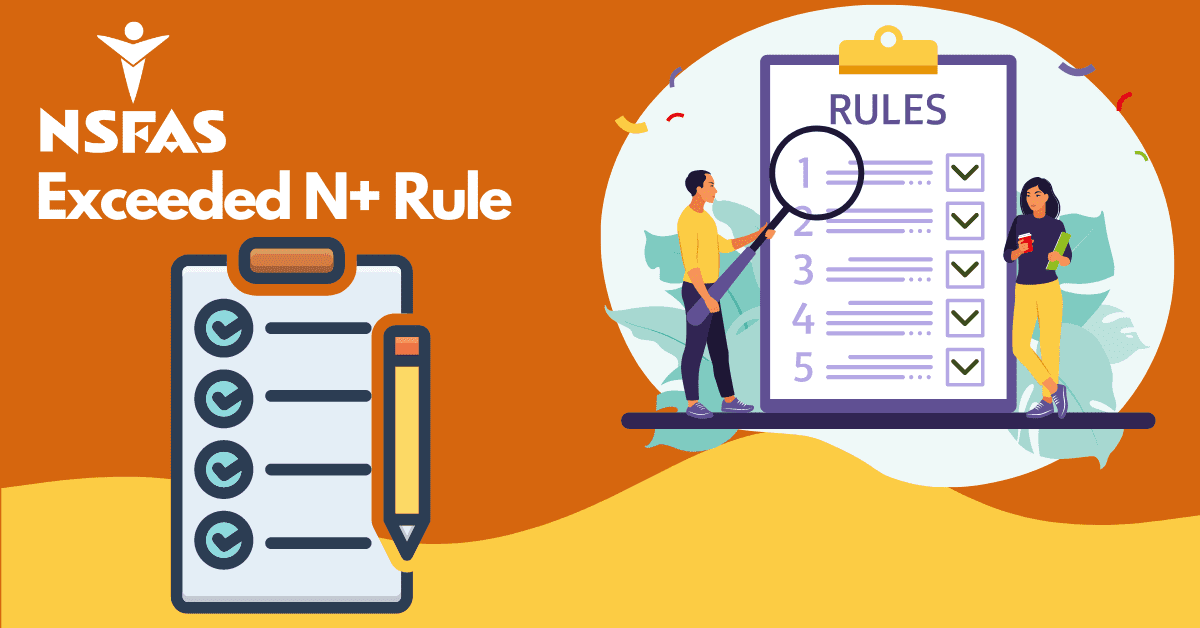
What Does NSFAS Exceeded N+ Rule Enrollment Means?
In this article, we will be looking at one of such reasons: the ‘NSFAS Exceeded N+ Rule Enrollment.’
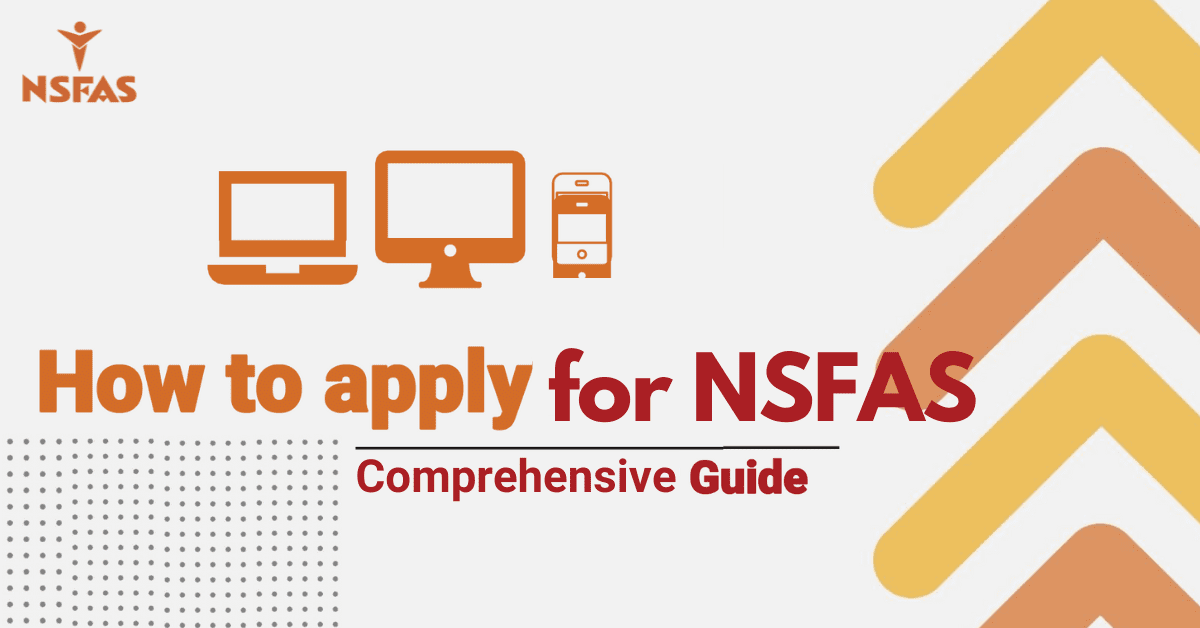
A Comprehensive Guide On How To Apply For NSFAS
NSFAS gives you the financial backing to pursue your tertiary education. This guide details how you can get NSFAS funding in 2024. How To Apply For NSFAS
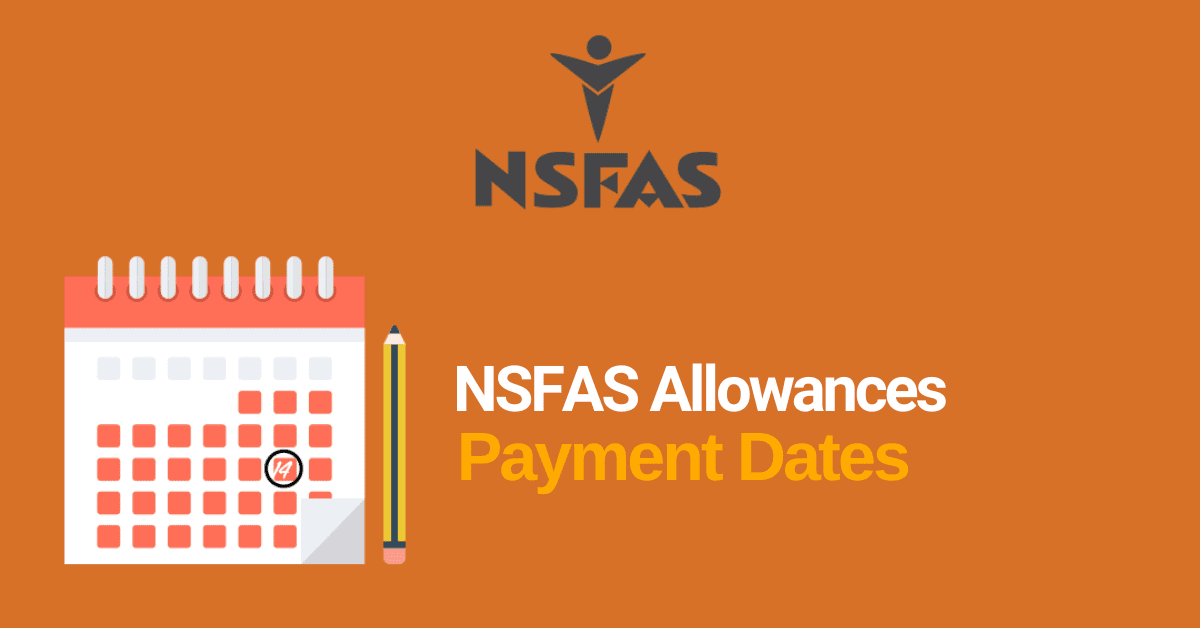
NSFAS Allowance Payment Dates 2024
NSFAS allowances are paid monthly. In the 2022 cycle, these are generally paid out in the first week of every month for 10 months. NSFAS Allowance Payment Dates
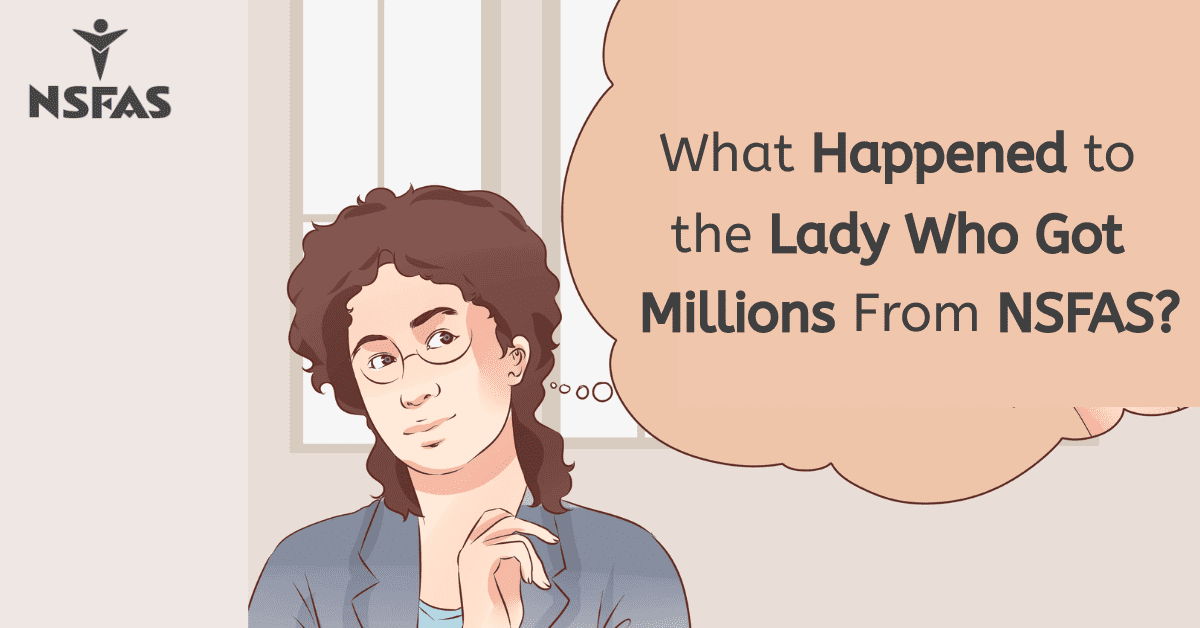
What Happened to the Lady Who Got R14 Million from NSFAS?
The Lady Who Got R14 Million from NSFAS. Curious as to the highest-profile incidence of theft of NSFAS funds, we have all the details here

IMAGES
VIDEO
COMMENTS
A student may need to write an NSFAS motivational appeal letter in the following situations: When their application for financial aid has been rejected: If a student’s application is rejected, they can write an appeal letter to request a review of the decision.
The National Student Financial Aid Scheme (NSFAS) appeal letter is the motivational letter you write to NSFAS for your application for funding review when your application is rejected or canceled.
The appeal process involves downloading and filling in the NSFAS appeal letter pdf form. The form is available on the NSFAS website. You should be careful to fill in accurate details in capital letters. You should also draft a handwritten appeal letter for NSFAS.
Attach a copy of a UIF letter or retrenchment letter. SASSA applicants must submit the following: A letter from SASSA stating your parent/guardian/spouse is getting a social grant. Additional Documents that You May Need to Submit to NSFAS: An affidavit signed by your parent/legal guardian/ spouse if they have informal employment.
If you are confused about how to write an affidavit for an NSFAS application, then you must refer to the following complete article. I will tell you exactly what an affidavit is, why you need it for NSFAS, and how to write it.
How to Write an Effective NSFAS Appeal Motivation Letter. Review Your Application: Understand the reasons for rejection or non-acceptance. Download the Appeal Form: Visit the NSFAS website and download the official “appeal” form. Compose Your Letter: Formal Address: Address the letter to the appropriate NSFAS official.
How to write NSFAS appeal letter and form 2024. Here’s a guide to crafting a compelling appeal: Structure and Content: Introduction: Briefly introduce yourself, state your ID number, and mention that you’re appealing the rejection of your NSFAS funding application or the withdrawal of your existing funding.
Step 1: Verify Eligibility and Prepare Documentation. Before diving into the application, ensure you meet NSFAS’s requirements. This may include criteria based on financial need, academic performance, and acceptance into an eligible institution. Gather all necessary supporting documents, such as your ID, proof of income, and academic records.
After receiving a rejection letter from the National Student Financial Aid Scheme (NSFAS), review the letter carefully to understand the specific reasons for the rejection. Then, gather the relevant supporting documentation for your appeal.
NSFAS demands students write an appeal letter providing information and any reason beyond doubt why their financial aid application should be approved. You only need to write this letter as soon as you find your application has been marked unsuccessful on the portal.